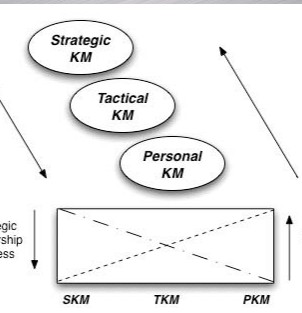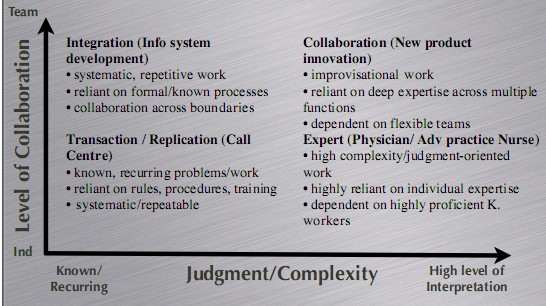信息管理与知识管理 KM AND IM comparative analysis
时间:2010-08-30 20:11:40 来源:www.ukthesis.org 作者:英国论文网 点击:122次
信息管理与知识管理 KM AND IM comparative analysis To discuss the difference between information management (IM) and knowledge management (KM) first asks us to define them. 1 Information management (IM) is an interdisciplinary field which focuses on information as a resource with an emphasis on collection. The material form in which this information occurs includes book, journals, and databases. Practitioners select, describe, classify, index, and abstract this information to make it more accessible to a target audience, either within or outside their organization. In a development context, IM is concerned to provide transparent and standardized access to information both within and outside the organization. IM has been often framed in terms of tools and technologies to store and organize information. 2 Knowledge management makes sense of information in the context of it's users. Practioners summarize, contextualize, value-judge, rank, synthesize, edit and facilitate to make information and knowledge accessible between people, either within or outside their organization. It concerns itself with the social interactions around the sharing and use of knowledge. KM is largely based on tacit interpretation and less on rules. Some question if knowledge can be "managed" at all. KM has often been framed in terms of knowledge in action for an end purpose. KM implies that the most important drivers relate to human behavior and interchange. Some see IM as a subset of KM. Ironically, KM is often positioned underneath IM (and more often IT) departments, rather than the other way around.
2、 知识管理由于知识管理是管理领域的新生事物,所以目前还没有一个被大家广泛认可的定义。Karl E Sverby从认识论的角度对知识管理进行了定义,认为知识管理是“利用组织的无形资产创造价值的艺术”。日本东京一桥大学著名知识学教授野中郁次郎认为知识分为显性知识和隐性知识,显性知识是已经总结好的被基本接受的正式知识,以数字化形式存在或者可直接数字化,易于传播;隐性知识是尚未从员工头脑中总结出来或者未被基本接受的非正式知识,是基于直觉、主观认识、和信仰的经验性知识。显性知识比较容易共享,但是创新的根本来源是隐性知识。野中郁次郎在此基础上提出了知识创新的SECI模型:其中社会化(Socialization),即通过共享经验产生新的意会性知识的过程;外化(Externalization),即把隐性知识表达出来成为显性知识的过程;组合(Combination),即显性知识组合形成更复杂更系统的显性知识体系的过程;内化(Internalization),即把显性知识转变为隐性知识,成为企业的个人与团体的实际能力的过程。#p#分页标题#e#  TYPES OF KNOWLEDGE WORK

www.ukthesis.org整理提供 (责任编辑:美国) |
